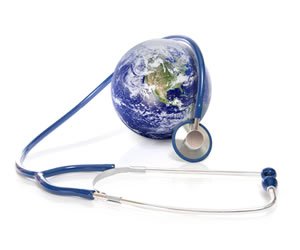
Wounded Healers: Depression in Medical School
What happens when the healer is the one in pain?
Written by: Ajay Koti
Published on: November 26, 2014

What happens when the healer is the one in pain?
Written by: Ajay Koti
Published on: November 26, 2014

“Go forth and do great things.” – Anonymous No one gets into medical school without ... Read more
Written by: Megan Riddle
Published on: November 24, 2014

You’ve volunteered. You get good grades. You’ve shadowed doctors. You’ve done everything you can to ... Read more
Written by: Marissa Sutera
Published on: November 21, 2014

“Knowing yourself is the beginning of all wisdom.” – Aristotle Even at the time, I ... Read more
Written by: Megan Riddle
Published on: November 17, 2014

The MCAT is a significant hurdle that all students who wish to attend medical school ... Read more
Written by: Anubodh “Sunny” Varshney
Published on: November 12, 2014

As a first-year medical student only a few weeks into gross anatomy, I still have ... Read more
Written by: Brent Schnipke
Published on: November 10, 2014

Reposted from here with permission. As a tour guide on interview days for my school, the most ... Read more
Written by: Allison Lyle
Published on: October 29, 2014

It’s no secret that medical school can be draining. Although it can be draining in ... Read more
Written by: Brent Schnipke
Published on: October 24, 2014

Dr. Judy Melinek is a board-certified forensic pathologist in San Francisco, CEO of PathologyExpert Inc., ... Read more
Written by: Juliet Farmer
Published on: October 22, 2014

The Top Twenty – no, wait – Top Twenty-Two – Are You Sure It’s Twenty-Two? ... Read more
Written by: Rusty Reeves
Published on: October 15, 2014

Choosing a field of medicine is likely the most important decision a medical student will ... Read more
Written by: Mimi Knoll
Published on: October 13, 2014

Earning a medical school admissions interview is a significant accomplishment. Many programs adhere to rigorous ... Read more
Written by: Anubodh “Sunny” Varshney
Published on: October 8, 2014

Studying medicine at English-taught medical schools overseas could provide good opportunities for some students.
Written by: Moshe Cohen
Published on: September 29, 2014

When medicine burns you out, find strength in remembering why you're there.
Written by: Jarna Shah
Published on: September 24, 2014

Part apology, part advice and explanation, from a resident to medical students.
Written by: Megan Riddle
Published on: September 15, 2014

Jennifer H. Yang shares her thoughts on the field of urology and offers some advice for students.
Written by: Juliet Farmer
Published on: September 12, 2014

Keep these things in mind this year to help you prepare for your medical school application process.
Written by: AAMC Staff
Published on: September 3, 2014

You never know when someone's well-being is going to depend on the skills you're learning.
Written by: Manik Aggarwal
Published on: August 27, 2014

Strong interview preparation allows you to give meaningful thought to what qualities you bring to the table and why you might be a good fit for a particular school.
Written by: Deborah Gutman, MD, MPH
Published on: August 25, 2014